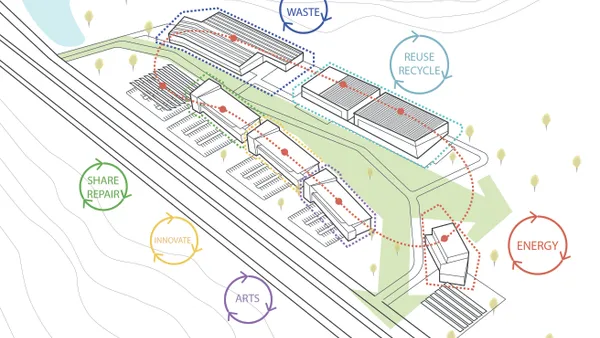Dive Brief:
- Oregon Gov. Kate Brown recently signed a bill (HB 2509) banning "single-use checkout bags" effective Jan. 2020. This does not include bags for produce, meat, fish, dry cleaning and other categories.
- Retail establishments will be required to charge at least five cents for paper bags (with 40% post-consumer recycled content or more), reusable plastic bags (4 mils thick) and reusable fabric bags. Restaurants may still provide paper bags at no cost.
- Brown also signed a bill (SB 90) banning distribution of single-use plastic straws except upon request, effective immediately. The law includes exemptions for certain healthcare facilities, drive-thrus and some convenience store settings.
Dive Insight:
Oregon has existing bag regulations in 10 municipalities, starting with Portland in 2011. This bill passed along party lines in the Oregon State Senate after facing the usual questions around environmental benefits, cost burden and feasibility.
The enrolled language is more stringent than several other state bills passed recently.
No distinctions are made about the size of covered retail establishments, and restaurants are also included — albeit with some exceptions. Requirements around bag thickness as well as handles for reusable plastic options may also limit the proliferation of more resource-intensive plastic replacements. Fee exemptions for customers using various income assistance programs may also mitigate questions about cost burden.
In an effort to track the outcomes of this new policy, the law outlines reporting requirements for grocers and the Oregon Department of Environmental Quality. A report on results to date is expected by Sept. 15, 2025.
The state joins California, Connecticut, Maine, New York and Vermont in passing some form of statewide plastic bag restriction policy. Hawaii has a de facto ban at the county level and Delaware's ban is awaiting an expected signature from its governor.
Oregon also joins a smaller group, including California and Vermont, by regulating straws. The recently signed Vermont law (S.113), which also banned plastic stirrers and expanded polystyrene foam containers, continues to be viewed as the gold standard by environmental groups. Oregon's own attempt at a foam ban failed to pass the state legislature this year.















